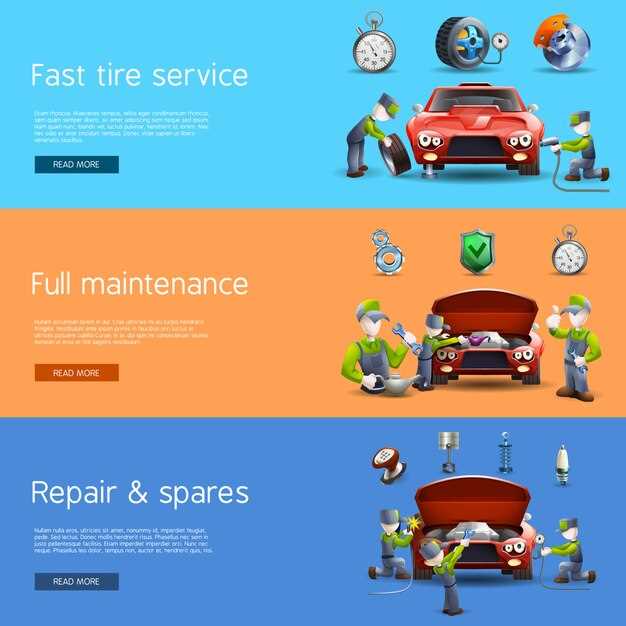
Maintaining the optimal performance of your car is essential for ensuring a smooth and safe driving experience. Over time, various components may wear out or become less efficient, leading to a decrease in performance and potential safety hazards. Recognizing the signs that your vehicle needs a tune-up can save you time, money, and unnecessary headaches down the road.
Several key indicators can signal that it’s time for your car to undergo a tune-up. From unusual sounds and decreased acceleration to warning lights on the dashboard, these symptoms often point to underlying issues that need attention. Addressing these indicators promptly not only improves your car’s performance but also extends its lifespan, allowing you to enjoy your drives without worry.
In this article, we will explore the most common signs that your car is due for a tune-up. By being proactive and staying informed, you can keep your vehicle running up to its best potential, ensuring that your journeys remain both enjoyable and secure.
Unusual Engine Sounds That Suggest a Check-Up
If your car is making unexpected sounds, it may be time for a tune-up. Unusual engine noises can indicate underlying issues that need attention. Listening carefully can help you identify problems early, preventing costly repairs down the road.
Knocking or Tapping Sounds: A persistent knocking or tapping noise coming from the engine could suggest issues with the engine’s internal components, such as worn bearings or insufficient lubrication. This symptom should prompt an immediate check-up to avoid severe damage.
Rattling Noises: If you hear a rattling sound, especially when accelerating, it can point to loose components or problems with the exhaust system. This sound often indicates that something is not securely attached or functioning properly.
Hissing or Whining Sounds: A hissing sound may indicate a coolant leak or vacuum leak, while a whining noise could suggest issues with the power steering or alternator. Both sounds are red flags that should not be ignored and require prompt evaluation.
Backfiring Sounds: If your car produces a backfiring noise, it may be a sign of an air-fuel mixture problem or an ignition issue. This can lead to reduced engine performance and needs immediate attention during a tune-up.
Recognizing these unusual sounds can lead to timely maintenance and a smoother-running vehicle. Always consult a professional if you experience any of these signs to ensure your car receives the proper tune-up it needs.
Signs of Poor Fuel Efficiency and Their Implications

Noticeable drops in fuel efficiency can be one of the first indicators that your car requires a tune-up. If you find yourself filling up more frequently or noticing a decrease in miles per gallon (MPG), it’s essential to pay attention to these signs. A well-tuned car should maintain optimal fuel consumption, and deviations can signal underlying issues.
One common sign of poor fuel efficiency is the presence of a check engine light. This warning can indicate several problems, such as a malfunctioning oxygen sensor or fuel injector issues, both of which can significantly impact fuel consumption. Ignoring this warning can lead to more severe problems and costly repairs down the road.
Another indicator is rough engine performance, which might manifest as hesitation during acceleration or a persistent stalling feeling. Such symptoms suggest that the engine may not be running as smoothly as it should, often due to neglected engine components that require adjustment or replacement.
Additionally, increased exhaust emissions and a noticeable change in exhaust odor can be signs of incomplete fuel combustion, which further highlights the need for a thorough tune-up. Efficient combustion is key to achieving better fuel economy, and a well-maintained car is designed to minimize harmful emissions.
Finally, if you experience fluctuating speeds or poor engine response, it’s crucial to consider that your vehicle may not be operating efficiently. Keeping up with regular maintenance, including a comprehensive tune-up, can address these issues before they escalate and ensure that your car performs optimally.
Dashboard Warning Lights and What They Mean for Performance

Dashboard warning lights play a crucial role in monitoring your car’s performance. Each light signifies a specific issue that could impact how well your vehicle operates. Ignoring these indicators can lead to more severe problems down the line, making it essential to understand their meanings.
The check engine light is one of the most critical warnings. It can indicate a variety of issues, ranging from minor problems like a loose gas cap to more serious concerns such as engine misfires. Addressing this light promptly can significantly improve your car’s performance.
Another important light is the oil pressure warning. This light signals that your engine oil could be low or that there may be an issue with the oil pressure. Low oil levels can lead to inadequate lubrication, resulting in engine wear and decreased performance. Regularly checking your oil levels can help maintain your car’s health.
The battery warning light checks the electrical system of the vehicle. A lit battery light can mean that your car’s battery is not charging correctly, which may affect starting performance and lead to more extensive electrical problems. Ensuring your battery is in good condition is essential for peak performance.
The temperature warning light monitors engine temperature. If this light activates, it may indicate overheating, which can result in engine damage if left unaddressed. Keeping an eye on the cooling system and fluid levels can prevent overheating and help your vehicle perform optimally.
Lastly, the brake warning light relates to the braking system’s performance. This light may indicate low brake fluid levels or issues with the braking system itself. Since brakes are critical for safe driving, addressing this warning immediately is vital for maintaining both safety and performance.
By staying vigilant with dashboard warning lights, you can take necessary actions that contribute to your car’s performance and longevity. Regular inspections and prompt tune-ups based on these indicators are essential to keep your vehicle running at its best.




